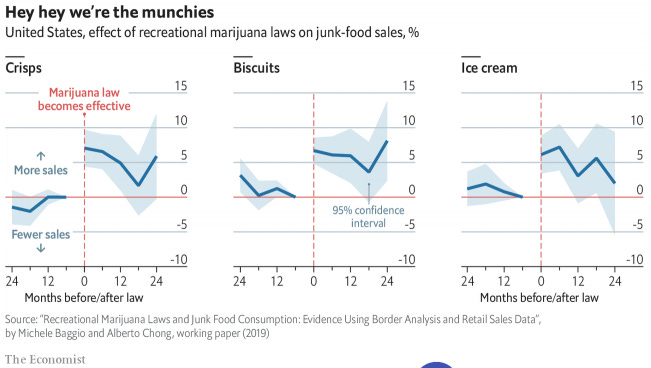Video of the week:
Scott Galloway reviews retail and tech trends - highly, highly recommended:
Honorable mention:
Podcast of the week:
Wonderful story made all the more better by the fact that Michael Lewis is the narrator. Skip Prologue + Act 1 but listen until the end if you do start.
Plot Overview:
“Writer Michael Lewis tells the story of a man named Emir Kamenica, whose path to college started with fleeing the war in Bosnia and becoming a refugee in the United States. Then he had a stroke of luck: a student teacher read an essay he’d plagiarized from a book he’d stolen from a library back in Bosnia, and was so impressed that she got him out of a bad high school and into a much better one. He went on to Harvard and great success. Years later, he tracks down the student teacher to thank her, only to find that she remembers the story differently.”
Article of the week:
Excerpt:
“Warren Buffett loves to talk about businesses that are like drawbridges: if there’s only one bridge crossing the river in town, and everyone wants to cross it all the time, then you own something really valuable. You can charge an attractive profit in order for people to access the other side; the more people and things and abundance on both sides of the bridge, the more scarce and valuable your bridge and the access it confers. One of Buffett’s classic “drawbridge businesses” was owning the local newspaper. If a newspaper has all the local readership, then advertisers who want to reach those readers need to pay the newspaper an attractive fee in order to make it in the pages – and then another fee if they want to be in colour, or on a good page in a big size, or generally to stand out and be seen. The more abundant the readership and the advertising base, the more scarce the newspaper’s access becomes. (Until they get disrupted by Google, who built a newer, bigger bridge.) ”
Honorable mention:
Statistic of the week:
“The big banks have been fined upwards of $300B (Image 1) in the last decade…Just this week, the UK fined banks $66B (Image 2): "The commission paid by the bank to its staff for the sale was 87% of the premium. As the profits were so large, firms were prepared to risk a fine for mis-selling, according to the Financial Services Authority"“ - Avichal Garg
Image 1:

Image 2:

Honorable mention:
(Relevant as Elizabeth Warren continues to gain in polls and is now the second-favorite to become the next Democratic nominee)
“The top 15 richest Americans would have seen their net worth decline by more than half to $433.9 billion had Warren’s plan been in place since 1982, according to the paper by University of California, Berkeley professors Emmanuel Saez and Gabriel Zucman.”

Quote I’m reflecting on this week:
“Happiness is a momentary experience that arises spontaneously and is fleeting. Meanwhile, satisfaction is a long-term feeling, built over time and based on achieving goals and building the kind of life you admire” - Daniel Kahneman. For more, read this.
Book recommendation of the week:
High Growth Handbook - Elad Gil. Lots of useful advice from some of the best investors and operators in Silicon Valley.
Start-up of the week:
Patch - fractionalizing home equity.
“In the existing home finance world, the only thing you can do with your home equity is borrow against it. And many homeowners do this. It is a big market and helps a lot of homeowners out. But once you borrow against your home equity you have larger monthly mortgage payments to make and many can’t afford to do that. And you need a certain credit score to be able to access the home equity loan market. What Patch offers instead is to take a piece of your home equity (currently limited to $250k maximum) and sell the upside on it to a investment fund. Note that I said upside. This is effectively a call option on the equity not a full transfer of that equity. That makes things a lot simpler in many of the scenarios that could arise. There are some great use cases for a partial sale of home equity. One example I like a lot is a family whose children are heading to college and soon will be out of the home. They plan to sell the home when all the kids are gone but don’t want to do that until then. They could sell some of their home equity, help pay for college, and then sell the house after all of the kids have graduated. There are plenty of examples like that where you are in a situation in life where you plan to sell but not just yet and you don’t want to add to your debt load and/or your monthly payments.” - Fred Wilson
Tweet of the week:
(from Brian Armstrong, the CEO of Coinbase)
 It's easy to bounce from one new idea to the next, exploring your intellectual curiosity. But having an impact requires a decade of moving the ball forward one yard every day, sometimes in a very mundane way, through multi-year ups and downs.
It's easy to bounce from one new idea to the next, exploring your intellectual curiosity. But having an impact requires a decade of moving the ball forward one yard every day, sometimes in a very mundane way, through multi-year ups and downs.Honorable mention:
Image of the week:

Honorable mention:

Question of the week:
“How difficult would it be for you to listen to other people’s stories and not immediately respond with your own internal experience/story (re-centering the conversation on you) for 30 days?” - Danielle Morrill
To receive more posts like this, sign up for our newsletter!



